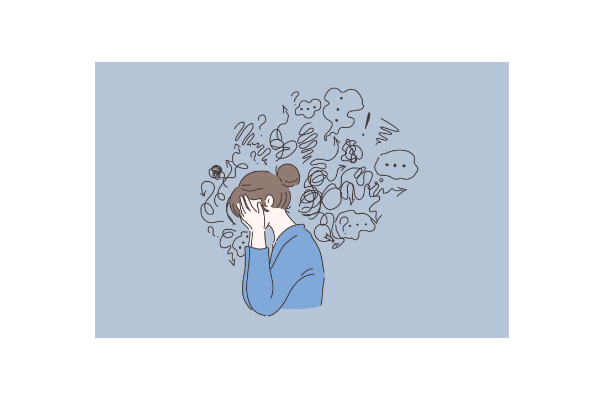Everyone feels depressed at some point in their life. But facing depression on a day-to-day basis could be a disorder and leads to mental health issues. This disorder is termed Clinical Depression or Depressive Disorder in medical language. It can also be referred to as Crippling depression. People suffering from such issues should consult a therapist or install mental health apps that can cure them.
Depression is an illness that threatens an entire population. It can cause severe symptoms that affect our perception, thinking about our daily activities, physical and mental health, and our relationships with family and friends. Research suggests that depression can affect mood, while for some, it affects the body. Depression can result from various factors, including genetic predisposition, environmental factors and environmental stresses, and other factors.
Symptoms of Depressions:
- Lack of energy and Fatigue
- Self-harm
- Low self-esteem
- Mood swings
- Trouble concentrating
- Sleeping too much or too little
- Lack of emotion
Side-effects of Depression:
Several possible causes of depression and symptoms can come and go or cause mood swings. Symptoms of depression are perceived differently in men, women, and children and concerning different parts of the body. Depression may be caused by biochemical or psychological factors which might be indirect and cause alterations of the body, such as changes in the brain, heart, lungs, kidneys, muscles, skin, and other organs. You are at higher risk of depression if your brain’s frontal lobe is less active.
Depressed people are more likely to have elevated blood pressure, high cholesterol, heart disease, diabetes, or other health issues. Your risk is raised if you have a history of opioid or alcohol dependence, and depression is attributed to other aspects of one’s well-being. However, in many cases, healthcare providers are unable to determine the cause of your depression.
Types of Depressions:
Depression can be categorized according to the severity of symptoms, and there are two types of depression: Mild and Persistent Depressive episodes.
- Mild Depressive Disorder:
Some people experience mild, transient episodes, while others experience severe, prolonged, or depressive episodes. This is characterized by persistent feelings of sadness, hopelessness, and worthlessness that may not vanish for a brief span, such as a few days or weeks
- Persistent Depressive Disorder:
(PDD), formerly known as dysthymia, is a milder, chronic form of depression that People with a history of severe psychotic disorder are more likely to experience. The American Psychiatric Association calls it a “major depressive disorder,” but there are many other names for it, including bipolar disorder, post-traumatic stress disorder, and obsessive-compulsive disorder. PD can affect your life for years, persist for long periods, and cause serious health problems. Symptoms must last at least two years before a diagnosis is made. It is essential to stick to a treatment plan. You can successfully treat depression with the help of a therapist or self-help through mental health apps.
Conclusion:
Living with depression can be challenging, but therapy can help you live a better life, and it can even make a positive difference in your life. You can successfully treat your symptoms with one form of treatment, or you can find a treatment combination that fits well for you. Consult a doctor on your choices, and if you don’t have one, it will help you find one.













Comments